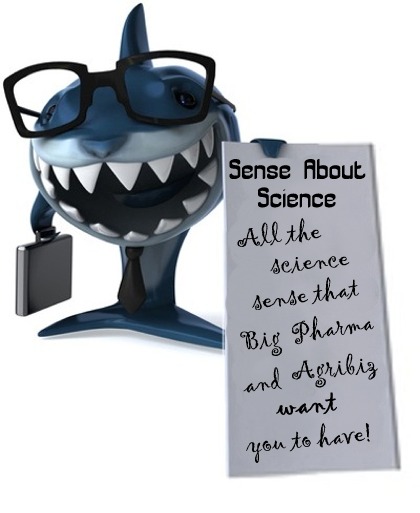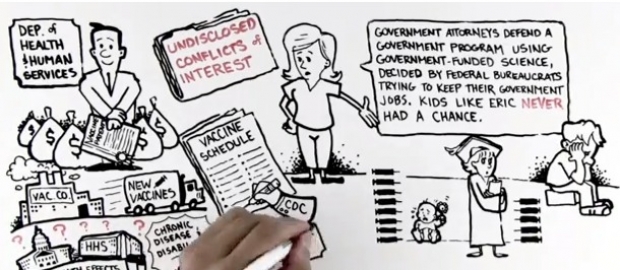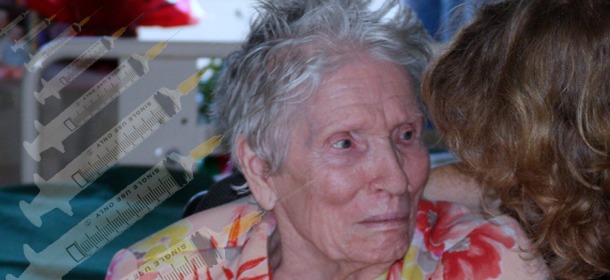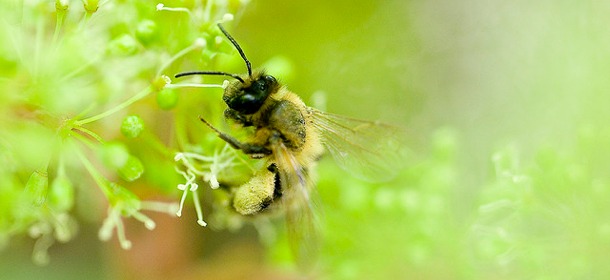Environment
Sense About Science: Big Pharma & Agribusiness Lobby Group Masquerades as Charity
Sense About Science is none of what it claims. It is not independent, charitable, and certainly not deserving of the term trust. It provides the appearance of legitimacy for Big Pharma and Agribusiness.
by Heidi Stevenson
Sense About Science presents itself is a fair arbiter of all things related to science, describing itself in the first sentence of its website’s home page as “a charitable trust that equips people to make sense of scientific and medical claims in public discussion”. Nearly every stance they take is on the side of Big Pharma and Agribusiness. The reality is that virtually all their financing comes from those industries or their beneficiaries, and their officials, trustees, and advisory council come from or are associated with the same sources.
Genetic Modification
Masquerading as a charity founded solely to provide honest information about science, Sense About Science (SAS) produced a report entitled “Making Sense of GM: What is the genetic modification of plants and why are scientists doing it?” It is an obvious propaganda piece for genetic modification of food. Even the title demonstrates their bias. The terms in which the paper is presented leave no doubt that it was written with the intent of promoting GM, not assessing it.
The first section of “Making Sense of GM” includes the title, “Genetic modification: reaching the parts other plant breeding methods can’t reach”. It gives the reader the strong impression that there’s nothing really different about genetic modification, that it’s nothing more than an extension of older plant breeding techniques. Of course, that’s far from the truth. Never before were genes selectively chosen from entirely unrelated species that could never have cross-bred before. Never were genes moved from animals to plants or vice versa.
The paper uses quotations that sound good, that put their viewpoint into a fuzzy-wuzzy heart-warming frame. How does that advance science? How can that be anything but an attempt to manipulate the public’s viewpoint, as opposed to an attempt to educate and elucidate? For example, they quote Professor Vivian Moses:
A gene is a piece of information which can be used in many different organisms, just as a word can have the same meaning in many contexts.
That sounds so nice! However, no legitimate scientist would attempt to manipulate viewpoint based on a false analogy. The simple fact is that genes are not words, and organisms are not context. The paper is full of such attempts to appeal to the emotions and give false impressions that are not based on any sort of scientific process or thinking.
The paper belittles concerns about escaped GM organisms. They state that “biosafety laws operate proactively, anticipating possible risks.” They state that super weeds, plants that are engineered to be resistant to glyphosate, really aren’t super, that it isn’t such a big deal to be resistant to a single pesticide. What they don’t mention is that it has already become a serious problem for farmers who don’t purchase the glyphosate-resistant seeds, because it increases their weeding problems hugely,nor does it mention that farmers who do purchase their seeds now must deal with glyphosate-resistant weeds. They also ignore the fact that glyphosate renders soil sterile, making it nothing more than a base for holding roots, useless at providing nutrients for plants—and forcing farmers to use petroleum-based fertilizers. Finally, they don’t mention that it results in massive increases in the use of glyphosate, further exacerbating the problems it creates. But that was the purpose behind developing glyphosate-resistant seeds—to sell ever more quantities of the same company’s glyphosate weed killer.
They cite studies that were industry financed as proof that there’s no safety issue associated with GM foods. However, they fail to note the enormous array of non-industry-financed studies that indicate problems ranging from lack of survival of young to sterility in adults after generations raised on GM foods, among a wide array of devastating harm produced by these unnatural crops.
The authors of “Making Sense of GM” are listed with brief bios—which are cleaned up to give the impression that they’re neutral. In reality, they are all supporters of GM and connected to institutions and organizations that are aligned with the industry. For example, the previously-quoted Vivian Moses is listed only as a Queen Mary & Westfield College professor emeritus, but there’s no mention of his position as chair of CropGen, which is financed by the biotech industry.
Sense About Science Funding
Funding of Sense About Science is from industry groups or organizations heavily influenced by them. Some are obvious, such as The Wellcome Trust, which was set up by GlaxoSmithKline before its name change, and Unilever, a multinational corporation noted for its destruction of rainforest to plant palms for oil.
Others aren’t so obvious, but a little digging is usually all it takes to get to the truth. For example, the Society for Endocrinology sounds like it’s a bunch of specialist doctors who gather to keep updated about their profession. However, a quick look at their website shows that their financial support comes from Amgen, Bayer, Pfizer, Sandoz, Novarto, and Merck—some of the most rapacious pharmaceutical corporations.
The universities might seem a puzzle as financial supports of SAS. Even there, though, it doesn’t take much digging to find the connections. The University of Edinburgh, for example, is deeply involved in genetic engineering and was recently involved in the development of a chicken that can’t transmit flu. They are so deeply involved in the pharmaceutical industry that they’ve even created a successful startup, Haptogen, which was purchased by Wyeth.
Why are universities helping to fund an industry lobby group? What are the real goals of the schools? It’s beginning to look like their interests aren’t in doing honest research. If they were, then they would certainly not choose to fund something as one-sided as SAS. It seems that they have become diploma mills, spewing out graduates finely tuned for Big Pharma and Agribusiness, and they not only cooperate with these industries, they’ve become part of them.
As you can see from the following list of SAS funders, they certainly have no need for donations from the general public—though they certainly ask for them.
| Financial Supporters Currently Listed by Sense About Science: | |
|
|
SAS has taken stands on many issues of concern to natural health advocates:
- Food Additives: SAS whitewashes issues of food additives, giving the impression that they’re harmless, or so nearly harmless that there’s no concern. They feature quotes by Nigel Denby extolling “modern food processing technologies” and claiming that “organic foods can contain additives — currently 29 additives are approved for use in organic foods”. They don’t mention that government approval of adulteratives in organic food does not make it acceptable, nor do they mention Denby’s association with the British Dietetic Assocation, which lends their name to The Sugar Bureau, a sugar industry lobby organization.
- Chemicals: SAS starts its chemicals industry whitewash with the statement that “everything is made of chemicals”. They don’t mention the fact that the term is generally used to refer to chemicals that have been artificially created, not those that naturally exist in natural biology. They casually dismiss the connections between many toxic chemicals and diseases. They claim that there is an “extensive regulatory system that strictly controls what chemicals can be introduced”—but the reality is that extremely harmful chemicals routinely make it into the environment, with dioxin an obvious example, as in the children of Corby, Northamptonshire, England.
- Evidence-Based Medicine: Here is where SAS sinks to its lowest. The SAS website’s link for EBM goes to the website, Evidence-Based Medicine Matters, which consists of nothing but quotations offering the opinions of several people—but not one whit of evidence in support of the concept. That is mindboggling! Their entire raison d’être, the very name of their organization, is supported with emotion-wringing quotations, not with facts.
- Alternative Medicine: SAS focuses its attack on homeopathy. Their anti-homeopathy tract states, “Over 150 clinical trials have failed to show that homeopathy works,” and then acknowledge that some trials have shown it to be effective—but they toss them off as being of low quality, though they offer no such evidence and simply presume that the ones against homeopathy were good. In contrast, they claim that studies for pharmaceuticals are well done—but they do seem to have missed the evidence that’s come out over the last few months demonstrating that, not only are the trials themselves heavily influenced by Big Pharma, but the journals that report them are, too. The tract goes on and on about the placebo effect, with the claim—but no evidence—that it explains homeopathy’s effects. They offer a wide array of interesting facts, such as the fact that an animal can tell the difference between colors of pills, but don’t offer the associated fact that no self-respecting scientist would offer different colored placebo pills. They don’t offer genuine arguments against homeopathy. They offer only dislocated information that gives an impression, along with presumptions about how homeopathy works, but nothing to support their claims. And they claim to offer sense about science!
SAS has also gotten involved in other issues, including vaccines, malaria, health testing, and nuclear power as an energy source. It will surprise no one that they favor nuclear power.
Sense About Science is none of what it claims. It is not independent, it is not charitable, and the term trust must surely be a joke. It is a well-funded lobbying group for some of the most environmentally destructive and health destroying industries the world has ever seen.
Tagged agribusiness, big pharma, gmo, junk science, politics, pseudo-science, pseudoscience, science, science about science bias, sense about science, sense about science agribusiness, sense about science alternative medicine, sense about science big pharma, sense about science charity, sense about science chemicals, sense about science food additives, sense about science gmo, sense about science homeopathy, sense about science industry
Related Posts
-
Louise
-
Louise
-
Don
-
Grace
-
-
grace
-
Jane, Germany
















